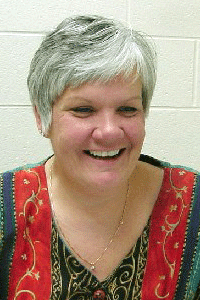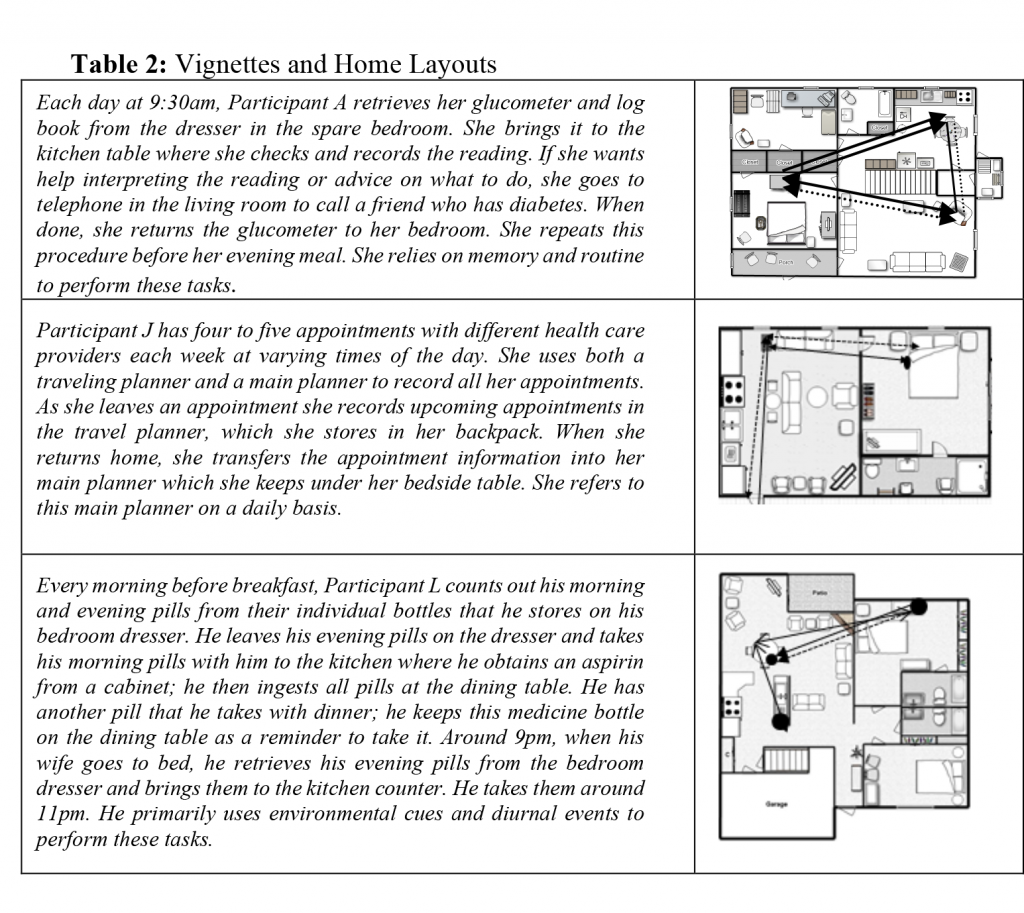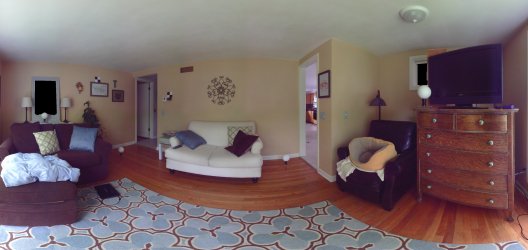The vizHOME team in the Living Environments Lab (LEL) has undertaken a 5-year, 5-part study to explore how the context of the home impacts how people manage their health information. As people are increasingly tasked with their own home health management, the vizHOME project is using intensive interviews alongside specialized imaging techniques to identify and remove barriers to effective care.

Gail Casper, lead author of the team’s recent award-winning paper, notes that often patients are given discharge instructions or equipment that either does not fit in the home or cannot be implemented properly because of other environmental constraints. By identifying these barriers, vizHOME can improve Personal Health Information Management (PHIM).
The paper presented at the Thirteenth International Congress in Nursing Informatics detailed the discoveries of the first part of the study, wherein twenty people with diabetes – a condition selected because it requires information management tasks – were recruited through the Survey of the Health of Wisconsin (SHOW), UW Health Clinics and Craigslist. Researchers came into participants’ homes in the Madison, Milwaukee, and Janesville areas to observe their practices and interviewed them about their home healthcare methods. Each home visit took two to three hours and included having the entire home LiDAR scanned to collect point-cloud data which was used in later phases of the study. To keep the information collected representative of actual living conditions, participants were explicitly told not to change anything about their homes or habits.
Casper was in awe of the openness exhibited by the study participants. “It required a degree of exposure. I’m 95% certain most of these people did not change the way their house looked. We saw incredible stuff.” She related the story of a participant who was supposed to take her oral diabetes medication morning and evening. She confided that she was so afraid of forgetting to take the medication in the evening that she took it all in the morning. The VizHOME team partners with UW Health Clinics and Casper relayed the story to a diabetes educator there who assured her that such situations occur all the time. The educator went on to say it was better that the person was at least taking the medication, however irregularly, than forgetting to take it at all. “The thing that became very apparent to me [as I was analyzing the data] was that people are really pretty resilient,” Casper said. She also noted in the first phase of the study that people used clocks as cues much less often than one would expect. Instead, people were more likely to use contextual cues, for example the start of a television show.
“The thing that became very apparent to me was that people are really pretty resilient.”
–Gail Casper
In phase two of the study, experts went through the virtual versions of the homes via the point-cloud data projected on the CAVE located in the LEL. The images were so realistic, Casper said she grabbed for a handrail in the virtual environment when faced with a staircase. The experts identified objects and spaces in the home that would be useful for managing healthcare, such as a lamp next to a sofa where someone could sit and read about their care or a clear area on a countertop to conduct a blood sugar test.
Phase three recruited twenty lay people to come in and identify objects and spaces just as the experts did. Lay people identified fewer things than the experts; Casper felt this revelation was not surprising because it points to the notion that experts think they know what people do in their homes but are not always able to put themselves in the patient’s shoes.
Phase four of the study will run mid-August through December. vizHOME is now actively recruiting 60 people (ages 18-75) with a diagnosis of diabetes to come to the CAVE in the Discovery Building to experience a subset of the virtual reality homes and identify more streamlined sets of objects and spaces.

The kind of data vizHOME collects may one day inform architects, designers, and planners about what kind of space is valuable and useful. Studies such as these bring up new questions with potentially fresh answers: If a television show is a prompt for medication dosing, how can we harness that technology?
vizHOME’s innovation and discoveries were recognized recently at the Thirteenth International Congress in Nursing Informatics, a highly regarded conference held only once every three years where the vizHOME team’s Health@Home moves all about the house! was selected first prize winner in the Best Scientific Paper category. The congress, held in Geneva, Switzerland at the end of June, included over 1100 pages of proceedings.
The paper is an accessible read even for non-experts, and highlights the important and complex research vizHOME is doing for home healthcare. Casper credits Patti Brennan, LEL’s theme leader with the forward thinking that places their study on the cutting edge of Personal Health Information Management (PHIM). Both Casper and Brennan are Registered Nurses. Brennan is a Professor of Industrial Engineering and Casper’s background is in Nursing with a heavy emphasis on Informatics. Joining them on the paper was Professor Catherine Arnott-Smith from the School of Library and Information Sciences (SLIS), Yuqi He, SLIS graduate student, and Assistant Professor Nicole Werner from the College of Engineering who has a psychology background in human factors. The interdisciplinary nature of the researchers brings a richness and perspective to this study and paper that a more narrowly disciplined approach could not attain.
VizHOME is currently seeking participants diagnosed with diabetes for phase four of their study. Participants should be between the ages of 18-75 and be able to navigate stairs. Parking is provided as well as a stipend. Interested parties should contact Gail Casper at (608)316-4340.


You must be logged in to post a comment.